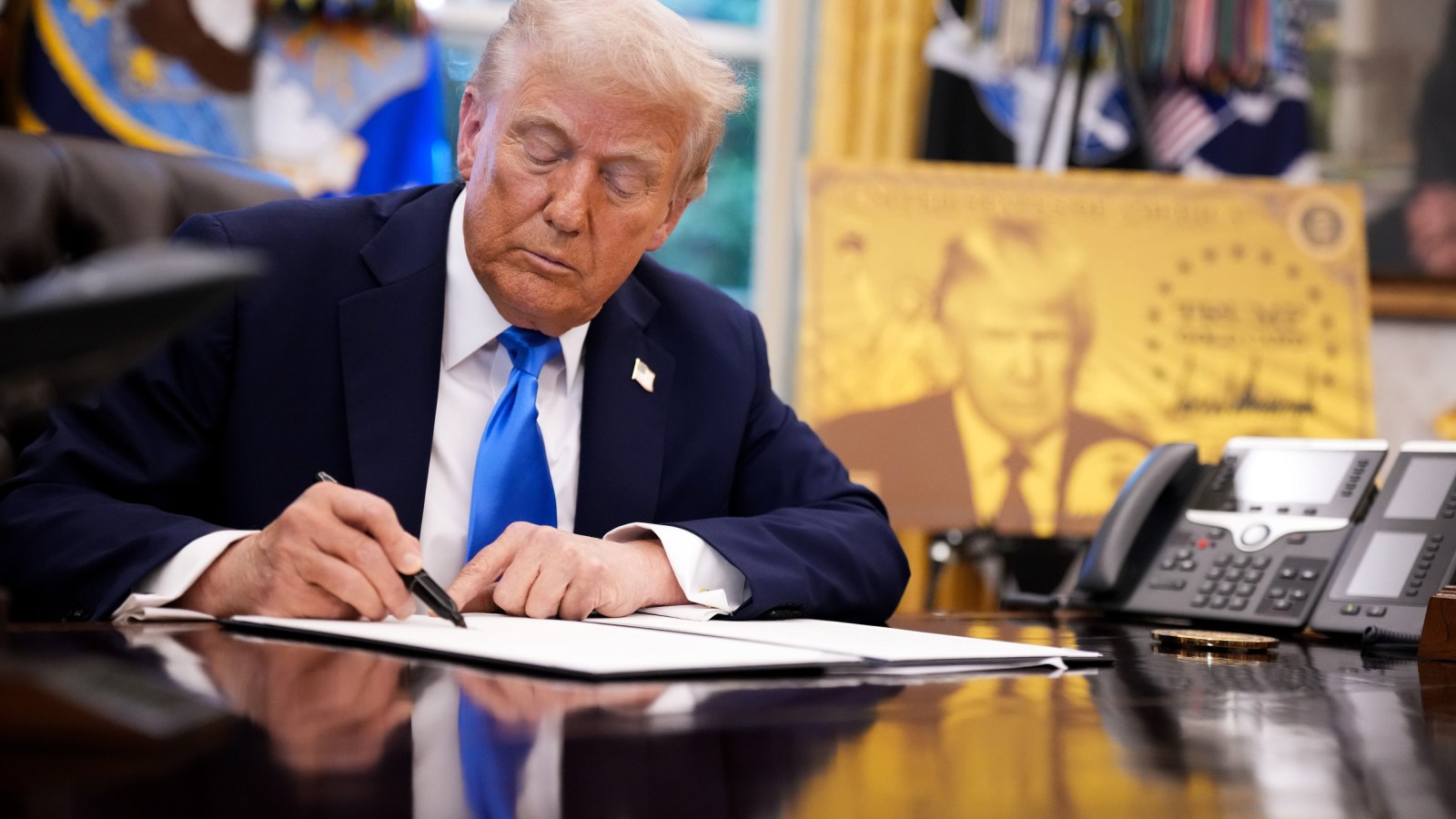By Andrew Stanton
Copyright newsweek

President Donald Trump’s latest changes to H-1B visas have sparked concerns about health care across the United States.Newsweek reached out to the White House for comment via email.Why It MattersTrump announced on Friday that his administration would begin charging employers $100,000 to issue H-1B visas for foreign workers. Trump campaigned on stricter immigration enforcement, but the topic of H-1B visas has divided conservatives; some believe the visas have resulted in American citizens losing good jobs, but others view them as attracting good, skilled workers to the United States.Health care employers use H-1B visas to sponsor doctors and medical students, who play a pivotal role in the health care system, particularly in serving communities that are already experiencing a shortage of doctors. Trump’s announcement about charging employers $100,000 for the visa has sparked confusion and concerns about the ramifications for health care, especially in rural areas.What To KnowTrump warned in the proclamation announcing the policy change that some employers “have abused the H-1B statute and its regulations to artificially suppress wages, resulting in a disadvantageous labor market for American citizens, while at the same time making it more difficult to attract and retain the highest skilled subset of temporary workers, with the largest impact seen in critical science, technology, engineering, and math (STEM) fields.”It noted that exceptions can be made “if the Secretary of Homeland Security determines, in the Secretary’s discretion, that the hiring of such aliens to be employed as H-1B specialty occupation workers is in the national interest and does not pose a threat to the security or welfare of the United States.”The White House on Monday noted that exemptions can be made under the policy change in a statement to Bloomberg.”The Proclamation allows for potential exemptions, which can include physicians and medical residents,” White House spokesperson Taylor Rogers told the outlet.Tens of thousands of H-1B visas have been given to individuals in the “health care and social services” professions, according to data from the U.S. Citizenship and Immigration Services. New York is the state that has received the largest number of recipients at nearly 22,000. Massachusetts, with 14,000 recipients, and California, with 12,999 recipients, follow.Nancy Nielsen, senior associate dean for health policy at the University at Buffalo, told Newsweek that the order could have a “very serious effect on training of physicians to meet the healthcare needs of Americans.””It is estimated by the Association of American Medical Colleges (AAMC) that by 2036, there will be a shortage of 124,000 physicians, about 40 percent of them needed in primary care, in order to serve the healthcare needs of Americans,” Nielsen said. “Foreign-born physicians currently constitute about 23 percent of the physicians in active practice, according to the American Medical Association, and they have an outsized role in serving rural and underserved areas.”Most of those physicians came to the U.S. on H-1B or J-1 visas, she said. They often “work in specialties that US applicants aren’t as eager to enter, such as primary care.””International candidates make up 40 percent of residents in internal medicine, for example,” Nielsen said. “There is no variation in residency pay for US graduates versus foreign graduates.”Exceptions would be a solution to this, she said.”Meeting the healthcare needs of our country clearly is in our vital national interest. We certainly hope that subsequent clarifications of this new H-1B visa policy will announce that same exemption for healthcare workers,” she said.Physician Vin Gupta warned during an interview on MeidasTouch over the weekend that Americans could face cuts to health care access over the coming years, as it takes four to six years for a resident to graduate.”These impacts that go into effect today are going to rear their head as we are entering the next election, people who want to get in or need to be seen by a health system—suddenly, where is the human capital to do it?” he said.He said that hiring residents is cheaper for hospitals to employ than physicians.”If you have less people populating and being willing and able to take those jobs, what’s going to happen? The same thing happening with immigration more broadly on our farms and other places: physically we’re just not going to have enough people to care the demanded medical services that every American is going to need at some point.”Bobby Mukkamala, president of the American Medical Association, told Bloomberg that Trump’s plan “risks shutting off the pipeline of highly trained physicians that patients depend on, especially in rural and underserved communities.”What People Are SayingElissa Taub, an immigration attorney with Siskind Susser in Tennessee, told Newsweek: “This purported fee is really nothing more than an extortion attempt to try to punish US businesses for hiring the workers they desperately need. On a more personal note, my H-1B clients are mostly healthcare workers.”Even with the government saying that only petitions filed after 9/21 are affected, a huge swath of physicians, nurses, medical technologists and other healthcare workers will be swept up in this, and if they are unable to work in the US in H-1B status without their employers paying this bribe, then the US healthcare system quite literally will collapse.”Dr. Vin Gupta told MeidasTouch: “The irony here is it’s probably impact red states more than blue states, because red states are where there are more community hospitals, more rural hospitals, frankly, more places American medical grads tend not to gravitate toward. Instead, who fills the gap? It’s the foreign medical grad, who Trump’s made a lot more difficult—he made their path a lot more difficult to actually get educated here.”Representative Brandon Gill, a Texas Republican, on X: “America is a nation, not a jobs program for foreign workers. Our H-1B visa program has been abused for far too long.”What Happens NextHow the administration approaches exemptions for health care workers is yet to be seen.



